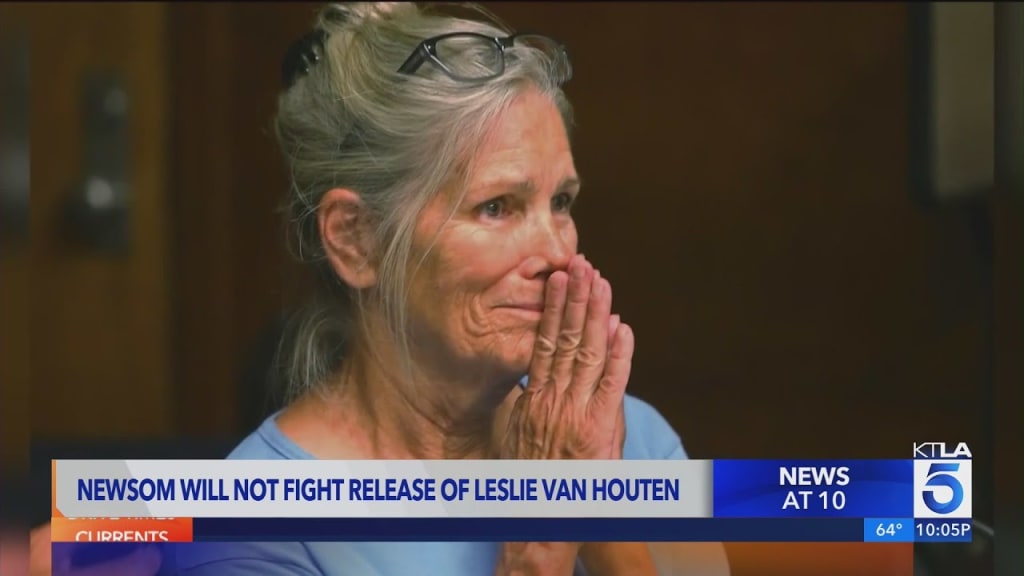Content warning
This story may contain sensitive material or discuss topics that some readers may find distressing. Reader discretion is advised. The views and opinions expressed in this story are those of the author and do not necessarily reflect the official policy or position of Vocal.
Leslie Van Houten:
The Manson Family Member and the Pursuit of Redemption

Introduction:
Leslie Van Houten, born on August 23, 1949, is a name associated with one of the most notorious crimes in American history. As a member of the Manson Family cult, Van Houten was involved in the brutal murders of Leno and Rosemary LaBianca in 1969. However, in the decades that followed, Van Houten's story took a complex turn, as she sought redemption, rehabilitation, and parole. In this article, we delve into the life of Leslie Van Houten, examining her involvement in the Manson Family, her imprisonment, her pursuit of redemption, and the ongoing debate surrounding her potential release.
Part 1: Early Life and Introduction to the Manson Family
Leslie Van Houten was raised in Southern California, coming from a relatively normal middle-class background. However, her life took a drastic turn when she encountered Charles Manson and his cult, known as the Manson Family. Under Manson's manipulative influence, Van Houten became a devoted follower, leading to her participation in the horrific Tate-LaBianca murders.
Part 2: The Manson Family Murders and Trial
The Tate-LaBianca murders, committed by the Manson Family, shocked the nation in 1969. Van Houten played a role in the LaBianca murders, which were characterized by extreme violence and a complete disregard for human life. Following her arrest, Van Houten stood trial along with other members of the Manson Family. In 1971, she was convicted of first-degree murder and sentenced to life imprisonment.
Part 3: Pursuit of Redemption and Rehabilitation
During her years in prison, Leslie Van Houten underwent a profound transformation. She pursued education, therapy, and self-reflection, distancing herself from the dark influence of Charles Manson. Van Houten expressed remorse for her actions and emphasized her commitment to rehabilitation and personal growth. Her supporters argue that she has shown genuine remorse, has taken responsibility for her role in the murders, and has become a model prisoner.
Part 4: Parole Hearings and Legal Challenges
Over the years, Leslie Van Houten has faced numerous parole hearings, each met with intense public scrutiny and opposition. Despite her efforts to demonstrate personal growth and rehabilitation, her release has been repeatedly denied by parole boards, who cite the gravity of her crimes and concerns about public safety. The legal challenges surrounding Van Houten's potential parole have sparked debates about the nature of redemption, punishment, and the role of the criminal justice system.
Part 5: Controversial Views and Public Opinion
The case of Leslie Van Houten has divided public opinion, with varying perspectives on her potential release. Some argue that her demonstrated growth, remorse, and rehabilitation should be considered in granting parole, viewing her as a product of manipulation and a candidate for rehabilitation. Others maintain that the severity of her crimes should preclude any possibility of release, emphasizing the need for accountability and respecting the wishes of the victims' families.
Part 6: The Impact of Manson and the Manson Family
The Manson Family's crimes and their subsequent media coverage had a lasting impact on American society. The shock, fear, and fascination surrounding the murders and the charismatic influence of Charles Manson contributed to a cultural shift and a heightened sense of vulnerability. The Manson Family case marked a turning point in public consciousness, influencing popular culture and leaving a dark legacy.
Part 7: Continued Debate and Legal Proceedings
The debate surrounding Leslie Van Houten's potential release persists, with legal proceedings and appeals ongoing. Advocacy groups, legal teams, and supporters continue to argue for her parole, citing her growth, her commitment to rehabilitation, and her potential for contributing positively to society. However, opposition remains steadfast, maintaining that the nature of the crimes committed and the need for justice and public safety outweigh any arguments for parole.
Conclusion:
Leslie Van Houten's involvement in the Manson Family and her participation in the Tate-LaBianca murders continue to captivate public attention and raise profound ethical and legal questions. Her pursuit of redemption and rehabilitation, coupled with the ongoing debate surrounding her potential release, forces society to confront complex issues of personal responsibility, punishment, and the potential for redemption. Whether Van Houten will ever be granted parole remains uncertain, but her case serves as a reminder of the enduring impact of the Manson Family crimes and the complexities of justice and rehabilitation within the criminal justice system.
About the Creator
Enjoyed the story? Support the Creator.
Subscribe for free to receive all their stories in your feed. You could also pledge your support or give them a one-off tip, letting them know you appreciate their work.





Comments
There are no comments for this story
Be the first to respond and start the conversation.